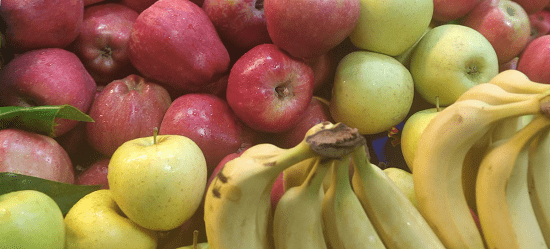Why should you only eat fruit in season?
Eating fruits in their season allows you to make the most of their vitamins and flavor. Summer fruits such as peaches, cherries, apricots and watermelon can be consumed in abundance on hot days, while oranges and tangerines can be used as a vitamin storehouse in winter. Since seasonal produce grows in completely natural conditions without the need for any environmental regulations, harmful chemicals, pesticides or ripeners, including it in our diet helps our health and keeps the soil, air and water clean.
What are the harms of eating fruit out of season? Fruit is grown out of season and pesticides, waxes and preservatives are added to keep it looking fresh. Pesticides and preservatives can cause headaches, nausea, cancer, asthma and Parkinson’s disease.

Eating fruit in season offers several benefits, both for your health and the environment:
- Nutrient Content: Fruits that are in season are typically harvested at their peak ripeness. This means they have had more time to develop their full flavor and nutritional profile. They are often richer in vitamins, minerals, and antioxidants compared to fruits that are picked before they are fully ripe and then artificially ripened.
- Flavor and Taste: Seasonal fruits tend to be fresher and more flavorful. The natural ripening process that occurs when fruits are grown in their proper season enhances their taste and sweetness.
- Cost-Effectiveness: Fruits in season are usually more abundant and, therefore, more affordable. When fruits are in season, the supply is higher, and this often results in lower prices compared to off-season fruits that may need to be imported or grown in less optimal conditions.
- Environmental Impact: Eating seasonal fruits supports local agriculture and reduces the environmental impact associated with transporting and storing out-of-season fruits. Transporting fruits across long distances requires energy and resources, contributing to carbon emissions and environmental degradation.
- Variety in Diet: Eating with the seasons allows for a diverse and varied diet. Different fruits are available at different times of the year, and this encourages a rotation of foods in your diet, providing a broader range of nutrients.
- Supporting Local Farmers: Choosing seasonal fruits supports local farmers and the local economy. When you buy produce that is in season locally, you contribute to the sustainability of local agriculture and help maintain regional biodiversity.
- Reduced Need for Preservatives: Seasonal fruits are often fresher and require fewer preservatives to maintain their shelf life. This can be beneficial for your health as it reduces your exposure to additives and chemicals.
While there are benefits to eating seasonally, it’s also important to note that advances in transportation and technology have made a variety of fruits available year-round in many parts of the world. In such cases, being mindful of where your food comes from and how it is produced can help you make more informed choices
Why are fruits in season?
Why should we avoid out-of-season produce? Fruits and vegetables consumed out of season have lower nutritional value, higher prices and are tasteless. In every season, different needs of our body arise according to the soil, weather and changing climatic conditions. Therefore, we need to consume what nature offers us on time.
Fruits have specific growing seasons influenced by various factors, including climate, temperature, daylight hours, and soil conditions. The timing of these natural cycles affects the growth, development, and ripening of fruits. Here are some key reasons why fruits have distinct seasons:
- Climate and Temperature: Fruits often require specific temperature ranges to grow and ripen properly. Many fruits have evolved to thrive in particular climates and temperatures. For example, tropical fruits may require consistently warm temperatures, while certain berries may need a period of winter chill to break dormancy.
- Daylight Hours: The length of daylight hours plays a crucial role in the flowering and fruiting processes of plants. Changes in daylight trigger hormonal responses in plants, influencing when they produce flowers and fruit. This is why some fruits are associated with specific times of the year.
- Pollination and Reproduction: The availability of pollinators, such as bees, butterflies, and wind, varies with the seasons. Plants have evolved to synchronize their reproductive cycles with the presence of pollinators. Fruits, which are the mature ovaries of flowering plants, develop after successful pollination.
- Adaptation to Environmental Conditions: Fruits often have adaptations that help them survive and reproduce in their specific environments. For example, some fruits have protective coatings or structures that deter certain pests or aid in seed dispersal. These adaptations are often linked to the environmental conditions of a particular season.
- Life Cycle of Plants: The life cycle of plants includes distinct phases such as germination, growth, flowering, fruiting, and senescence (aging). Each phase is influenced by environmental cues, and the fruiting phase, in particular, is closely tied to seasonal changes.
- Seed Dispersal: Fruits play a crucial role in the dispersal of seeds. Different fruits have evolved to attract specific animals that help disperse their seeds. For instance, some fruits are brightly colored to attract birds, while others may have adaptations for wind dispersal. These strategies are often timed to coincide with the availability of suitable dispersal agents.
Overall, the seasonality of fruits is a result of the intricate interplay between environmental factors and the biological processes of plants. This natural cycle has been crucial for the survival and evolution of plant species over time.





